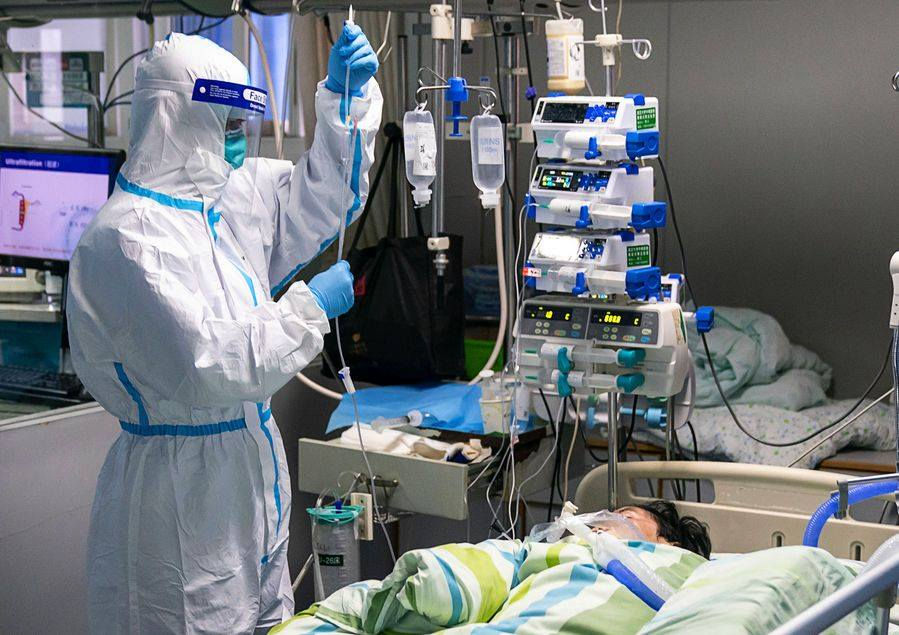Hospitality sector reels from ‘serious financial losses’
- Ventures Cebu

- Feb 7, 2020
- 3 min read

A GROUP of at least 60 Filipinos from Cebu was supposed to leave for a three-day tour in Macau and Zhuhai in February 2020.
With the cancellation of flights to and from China and its administrative regions until the end of February, the tour was put off, a Cebu-based travel operator said. Macau is a special administrative region while Zhuhai is a city in Guangdong province located next to Macau.
At a tour package fee of US$199 per person, roughly P597,000 (at a peso-dollar rate of P50 to $1) worth of business was lost in one trip and one tour group alone.
Many other similar trips had to be cancelled or postponed because of the respiratory disease outbreak caused by the 2019 novel coronavirus (2019-nCoV).
The outbreak is expected to take a bite out of the Philippine tourism industry, one of the biggest sectors in terms of contribution to the country’s economy.
It had prompted President Rodrigo Duterte to give in to public clamor to prohibit the entry of travelers coming from China and its special administrative regions Hong Kong and Macau.
This move has cut off China, the Philippines’ second biggest tourism market.
Chinese tourist arrivals have been steadily increasing. As of November 2019, the Philippines received a total of 1.625 million Chinese visitors, exceeding the 1.25 million Chinese arrivals in 2018 by a wide margin.
In 2018, Cebu received 621,993 Chinese visitors, higher than the 429,306 in 2017.
The Hotel Resort and Restaurant Association of Cebu, Inc. (HRACC), in a letter to its members posted on Facebook, said the hospitality sector is reeling from “serious financial losses as expected of cancellation of reservations and bookings, flight cancellations/less passenger load as this is the first casualty in the tourism industry.”
The association, assured that its members “are working together amongst themselves and closely coordinating with our government to address this very serious concern.”
The Department of Tourism (DOT) earlier issued guidelines in relation to the disease outbreak. HRRAC said its members were “concentrating on this bigger issue and setting up contingency plans to combat the plight now experienced by all in the industry.”
The government’s economic team, however, has downplayed the impact of the virus outbreak on the Philippine economy.
Inbound tourism expenditure, which refers to the expenditure of non-resident visitors (foreign visitors and Filipinos permanently residing abroad) within the Philippines, amounted to P 441.4 billion in 2018, according to the Philippine Statistics Authority (PSA).
Socioeconomic Planning Secretary Ernesto M. Pernia estimated total inbound tourism spending at only 5% of the country’s gross domestic product (GDP), or about P450 billion.
“Chinese inbound tourism spending is about P112 billion. So not really that big,” he said.
Bangko Sentral ng Pilipinas (BSP) Governor Benjamin E. Diokno, for his part, said the outbreak could shave off 0.3 percentage point - about a third of a percentage point - from the 2020 GDP, or 0.2 percentage point in the first quarter and 0.4 percentage point in the second quarter.
Including domestic tourism spending, the Tourism Direct Gross Value Added (TDGVA) amounted to PhP 2.2 trillion in 2018, or 12.7% of the GDP. The TDGVA measures the contribution of tourism to the Philippine economy.
Francisco Dakila, Jr., BSP deputy governor for the Monetary and Economics Sector, said the impact of the outbreak will be short term based on what happened with the Severe Acute Respiratory Syndrome (SARS) outbreak, which he said lasted only for about two quarters in 2003.
“The impact of the 2019-nCoV will be on expectations and confidence at a time when there is not yet any cure for the disease and while cases are still going up. But once it turns out to be under control, then sentiment can shift quite quickly to the other direction,” Dakila said.
The PSA reported a tourism direct gross value added (TDGVA) of P2.2 trillion in 2018, or 12.7% of the GDP, or the sum of goods and services produced in the country.
The TDGVA is a metric that measures the tourism industry’s direct contribution to the economy.
The tourism industry, however, has been taking a hit since the start of 2020 - firstly, from the Taal Volcano eruption, and secondly, from the 2019-nCoV acute respiratory disease outbreak. (Ventures Cebu)






Comments